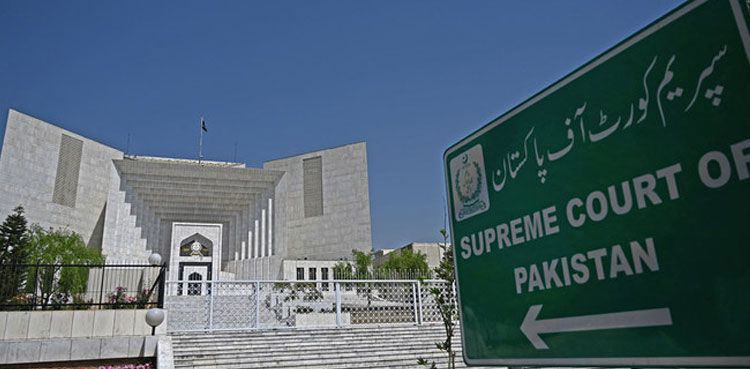NAB case: PTI founder wants to appear before SC ‘in person’

ISLAMABAD: Incarcerated PTI founder Imran Khan on Wednesday moved Supreme Court (SC), seeking permission to appear in ‘personal capacity’ in the National Accountability Bureau (NAB) amendment case.
Sources told ARY News that the deposed prime minister has sent a written request to the Chief Justice, seeking permission to appear before SC in person in the case.
The request has been forwarded to the Supreme Court through the Adiala jail administration. The apex court has fixed May 30 for the hearing of the NAB amendment case.
In the last hearing, PTI founder Imran Khan appeared before the Supreme Court (SC) bench via video link after a five-member bench okayed his appearance.
in the National Accountability (NAB) Ordinance 1999 amendment case.
Review petitions
The federal government filed the review plea in the NAB amendments case under the SC Practice and Procedure Law and made the Federation of Pakistan, National Accountability Bureau and PTI founder respondents.
Read more: Justice Mansoor suggests full court to hear NAB amendments case
Citing no violation of basic rights with the NAB amendments, the federal government pleaded with the SC to nullify its decision in the case. “Legislation is the right of the Parliament,” the plea said.
Verdict
In a majority 2-1 verdict, the top court approved Pakistan Tehreek-e-Insaf (PTI) founder Imran Khan’s petition challenging amendments made to the country’s accountability laws during the tenure of the previous Pakistan Democratic Movement (PDM)-led government.
The top court also restored graft cases against public office holders that were closed down following the amendments to National Accountability Bureau laws.
from ARY NEWS https://ift.tt/e02U7xN
Comments
Post a Comment